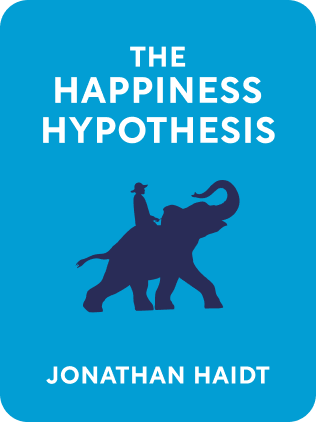

This article is an excerpt from the Shortform book guide to "The Happiness Hypothesis" by Jonathan Haidt. Shortform has the world's best summaries and analyses of books you should be reading.
Like this article? Sign up for a free trial here .
Looking for The Happiness Hypothesis book exercises? Do you want to relate the messages of the book to your life?
The Happiness Hypothesis explores the psychology of human happiness. These exercises about the book will help you examine your life and determine where you can improve.
Continue on for The Happiness Hypothesis book exercises.
The Happiness Hypothesis Exercises
The Happiness Hypothesis explores the nature of human happiness, blending the philosophical and theological wisdom of ancient thinkers with insights from the field of positive psychology.
Our satisfaction is driven by how our mental filters interpret the events in our lives, with the human brain perpetually divided against itself in the struggle between the desires created by our emotions and the attempts of reason to control them. The key to happiness is to use reason to focus the mind away from desires that will only bring fleeting happiness while giving in to those desires that will bring lasting fulfillment.
Here are some The Happiness Hypothesis exercises about the book.
Exercises to Overcome Self-Delusion
Think about how you can readjust your perceptions.
- Think of a past instance in which you behaved selfishly. How did you rationalize that behavior to yourself at the time?
- Do you think that this behavior stemmed from a built-in bias or self-delusion that you believed at the time? Briefly explain.
- Think of a conflict you had with another person. Based on what you’ve read in this chapter, can you identify the ways in which you might also have been to blame?
Questions to Identify Adversity
Think about how overcoming challenges has shaped you.
- In a few sentences, identify an incident in your life when you experienced an unexpected setback or loss.
- How did you cope with and overcome this setback? Were there people in your life that helped you get through it?
- What did surviving that experience teach you about yourself and the relationships in your life? Did you find that you were more resilient than you thought you’d be? Elaborate in a few sentences.
Understand The Happiness Hypothesis
Explore the main takeaways from the Happiness Hypothesis.
- Do you think that our perceptions and behavior are more driven by reason or emotion? Why?
- Why do you think relationships and attachments to other people are so vital to happiness?
- After reading this summary, are there specific virtues that you’d like to grow and develop? Identify them and explain why you believe they will increase your overall happiness.

———End of Preview———
Like what you just read? Read the rest of the world's best book summary and analysis of Jonathan Haidt's "The Happiness Hypothesis" at Shortform .
Here's what you'll find in our full The Happiness Hypothesis summary :
- How your emotions determine how satisfied you are in life
- Why you need to struggle in order to succeed
- How to create your own happiness






